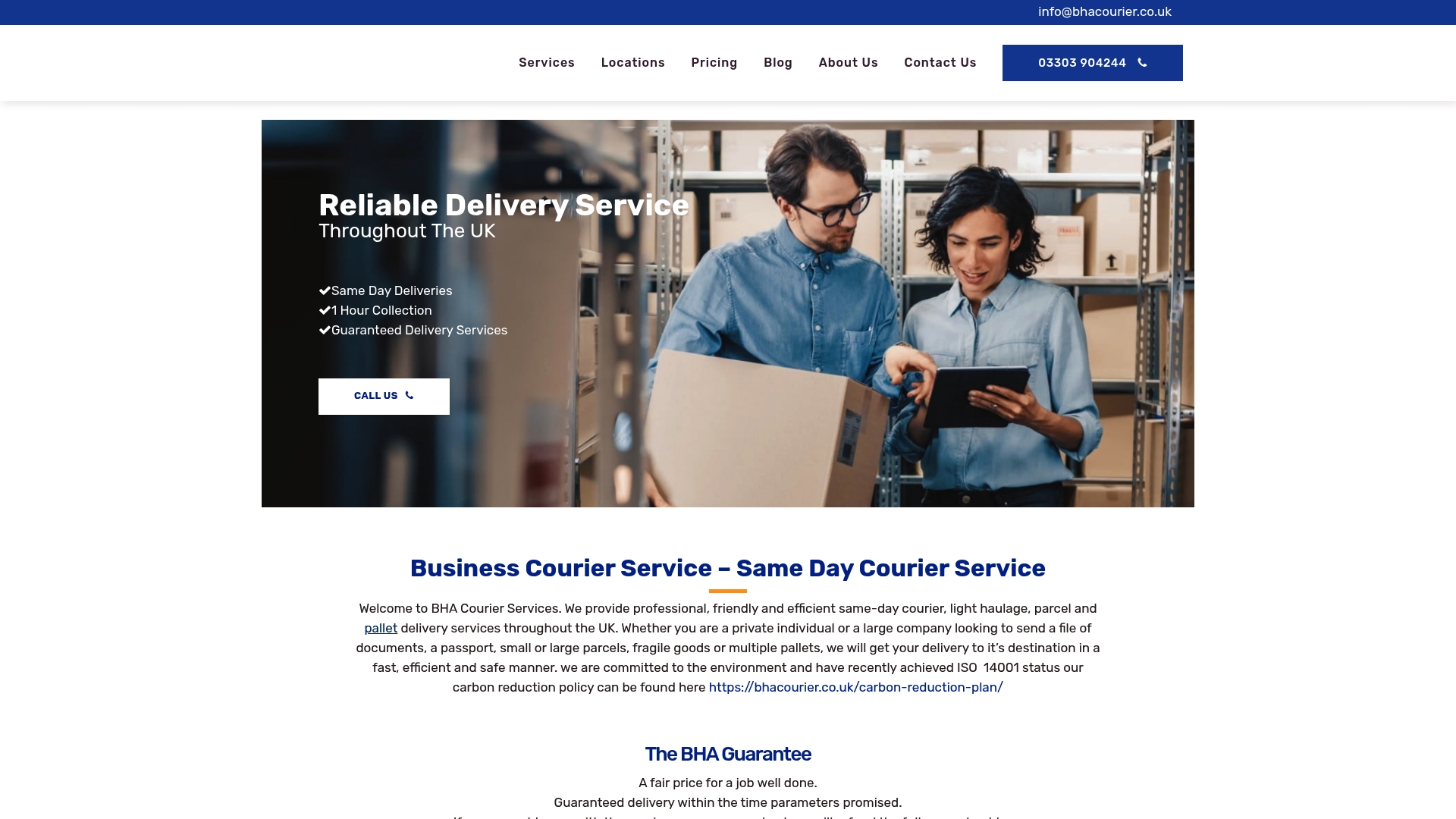
14 Jul Essential Delivery Driver Qualifications in 2025 for UK Businesses

Hiring a delivery driver in the UK is about much more than checking for a driving licence. New rules now require every driver to complete 35 hours of professional training every five years and passing background checks can mean avoiding fines up to £60,000. That sounds strict enough already, right? The real surprise is that in 2025, businesses will be searching for drivers with advanced tech-savvy, sharp customer skills and an ongoing commitment to learning just to keep up.
Table of Contents
- Key Delivery Driver Qualifications And Licences
- Required Skills And Experience For Uk Drivers
- Background Checks And Compliance In 2025
- Tips For Finding Qualified Delivery Drivers
Quick Summary
| Takeaway | Explanation |
|---|---|
| Valid Driving Licences Are Essential | Delivery drivers must hold the appropriate category driving licence (Category B for standard vehicles, C or C1 for larger vehicles) and employers should regularly verify their licence validity. |
| Mandatory Professional Training Required | As of December 2024, all delivery drivers must complete 35 hours of CPC training every five years, covering topics such as road safety and customer service. |
| Holistic Background Checks Necessary | Employers must perform comprehensive background checks, including criminal record verification and driving history assessment, to ensure regulatory compliance and workforce integrity. |
| Emphasise Continuous Development | Ongoing professional development is crucial, incorporating eco-driving practices and advanced training to adapt to industry changes and enhance driver competence. |
| Strategic Recruitment Approach Needed | Businesses should utilise diverse recruitment channels and sophisticated assessment techniques to attract and retain high-quality delivery drivers effectively. |
Key Delivery Driver Qualifications and Licences
Delivery driver qualifications in the UK have become increasingly sophisticated, reflecting the complex demands of modern logistics and transportation. Businesses must navigate a comprehensive set of requirements to ensure their drivers are legally compliant, professionally trained, and capable of delivering exceptional service.

Driving Licence Requirements
Every delivery driver must possess a valid driving licence appropriate to the vehicle they will operate. The Health and Safety Executive emphasizes that employers have a legal responsibility to verify and monitor driver competence. For standard delivery vehicles, a Category B driving licence is typically required. Drivers operating larger vehicles weighing over 3.5 tonnes will need additional professional qualifications, specifically a Category C or C1 licence.
Drivers must also meet specific age requirements. According to the Urban Driver Level 2 Apprenticeship standards, candidates must be at least 18 years old to obtain a provisional vocational licence. Additionally, employers should conduct regular licence checks to ensure ongoing validity and address any potential driving infractions.
Professional Certification and Training
The UK has implemented stringent professional certification requirements for delivery drivers. As of December 2024, the National Driver Certificate of Professional Competence (CPC) became mandatory for drivers operating within the UK. Government regulations require drivers to complete 35 hours of training every five years. These training modules can be as short as 3 hours and 30 minutes, with flexible e-learning options available.
Professional training covers critical areas including:
- Road safety techniques
- Vehicle maintenance and inspection
- Legal compliance and regulations
- Customer service skills
- Digital communication and tracking technologies
Beyond formal qualifications, employers should also review courier insurance requirements to understand additional protection mechanisms for their drivers and vehicles.
Physical and Mental Fitness Standards
Delivery drivers must meet comprehensive physical and mental fitness standards. The Health and Safety Executive mandates that employers ensure their drivers are physically capable and mentally prepared for the demands of professional driving. This includes:
- Regular medical assessments
- Vision and hearing tests
- Assessment of physical stamina
- Evaluation of stress management capabilities
- Verification of overall health fitness
Employers should implement robust screening processes that go beyond basic licence checks. This holistic approach ensures not just legal compliance, but also the safety of drivers, cargo, and other road users.
In the rapidly evolving delivery industry, staying updated with the latest qualification requirements is crucial. Businesses must invest in continuous training, regular assessments, and proactive driver development to maintain high standards of service and safety.

Required Skills and Experience for UK Drivers
In the dynamic world of UK delivery services, drivers must possess a comprehensive set of skills and experiences that extend far beyond basic driving capabilities. The modern delivery driver is a professional who combines technical expertise, interpersonal skills, and operational efficiency.
Core Technical Competencies
Technical proficiency forms the foundation of a successful delivery driver’s skill set. According to National Careers Service, drivers must demonstrate exceptional vehicle handling and navigation skills. This includes proficiency with GPS technologies, route planning software, and digital tracking systems. Drivers need to be comfortable with electronic logging devices, digital communication platforms, and real-time delivery management tools.
Professional drivers must also possess advanced mechanical awareness. Understanding basic vehicle maintenance, conducting pre-journey safety checks, and recognising potential mechanical issues are critical skills. This technical knowledge helps prevent potential delivery disruptions and ensures vehicle safety. Employers increasingly seek drivers who can perform preliminary vehicle inspections and understand basic troubleshooting techniques.
Professional Soft Skills and Customer Interaction
Beyond technical abilities, Indeed UK highlights the importance of soft skills in modern delivery roles. Customer service has become a paramount consideration for delivery drivers. Professionals must demonstrate:
- Excellent communication skills
- Professional demeanour
- Problem-solving capabilities
- Adaptability to changing situations
- Time management expertise
Delivery drivers often serve as the primary human contact point for businesses, making their interpersonal skills crucial. They must navigate diverse customer interactions, handle potential delivery complications, and represent their company professionally. This requires emotional intelligence, patience, and the ability to manage potentially challenging scenarios with diplomacy.
Continuous Professional Development
The delivery industry demands continuous learning and adaptation. Government CPC regulations mandate that drivers complete 35 hours of periodic training every five years, ensuring they remain updated with the latest industry standards, safety protocols, and technological advancements.
Modern delivery drivers must also be environmentally conscious. Understanding eco-driving techniques, fuel efficiency, and sustainable delivery practices has become increasingly important. Companies are looking for drivers who can contribute to reducing carbon footprints while maintaining operational efficiency.
To support ongoing professional development, businesses should explore comprehensive courier insurance options that protect both drivers and their professional interests.
The landscape of delivery driving continues to evolve rapidly. Successful drivers will be those who combine technical prowess, customer service excellence, and a commitment to continuous professional growth. Businesses seeking top-tier delivery professionals must look beyond traditional qualifications and seek individuals who embody these multifaceted skills.
Background Checks and Compliance in 2025
As the delivery and logistics landscape becomes increasingly complex, background checks and compliance have emerged as critical components for UK businesses in 2025. The evolving regulatory environment demands comprehensive screening processes that go beyond traditional verification methods, ensuring both organisational safety and legal adherence.
Legal Right to Work Verification
Employers must navigate stringent legal requirements regarding workforce eligibility. According to UK Government guidelines, companies are mandated to conduct rigorous right to work checks for all employees, including delivery drivers and gig economy workers. Legal experts at Lewis Silkin warn that failing to perform compliant checks can result in substantial fines up to £60,000 per illegal worker.
The verification process now requires multiple layers of documentation, including:
- Valid passport or biometric residence permit
- Comprehensive immigration status documentation
- Digital identity verification
- Ongoing compliance monitoring
Enhanced Background Screening Protocols
Taylor Wessing legal consultancy highlights the implementation of the Economic Crime and Corporate Transparency Act 2023, which introduces more rigorous identity verification requirements. This legislation mandates deeper background checks that extend beyond traditional criminal record searches.
Modern background screening for delivery drivers now encompasses:
- Criminal record checks
- Driving history verification
- Professional qualification authentication
- Credit history assessments
- Reference validation from previous employers
Businesses must implement comprehensive digital verification systems that can quickly and accurately validate an individual’s professional credentials and personal integrity.
Ongoing Compliance and Risk Management
Compliance is no longer a one-time activity but a continuous process of monitoring and verification. Companies must establish robust systems that enable real-time tracking of employee credentials, licence statuses, and potential risk factors.
Key compliance strategies include:
- Regular automated licence and qualification checks
- Periodic criminal background re-screening
- Digital monitoring of driving records
- Integrated compliance management platforms
To support these complex compliance requirements, businesses should explore comprehensive courier insurance options that provide additional layers of protection and risk mitigation.
The landscape of background checks and compliance continues to evolve rapidly. Successful businesses will be those that proactively adapt to changing regulations, invest in sophisticated verification technologies, and maintain a culture of transparency and legal adherence. By prioritising comprehensive background screening, companies can protect their operational integrity, ensure workforce quality, and mitigate potential legal and financial risks.
Tips for Finding Qualified Delivery Drivers
Recruiting top-tier delivery drivers requires a strategic approach that goes beyond traditional hiring methods. In the competitive landscape of UK logistics, businesses must develop sophisticated recruitment strategies to attract and retain skilled professionals who can meet the demanding requirements of modern delivery services.
Strategic Recruitment Channels
Navigating the recruitment landscape demands a multi-faceted approach. UK Government employment resources highlight the importance of diverse recruitment channels. Businesses should explore:
- Professional logistics and transportation job boards
- Targeted social media recruitment campaigns
- Partnerships with vocational training institutions
- Apprenticeship programmes
- Professional networking platforms
- Referral programmes with existing high-performing drivers
Employers must craft compelling job descriptions that clearly outline the technical skills, professional expectations, and career development opportunities associated with delivery driving roles. The job description should transparently communicate the comprehensive training support, potential career progression, and unique benefits offered by the organisation.
Advanced Screening and Assessment Techniques
Traditional interview processes are no longer sufficient for identifying top delivery driver talent. Health and Safety Executive guidelines emphasize the critical importance of comprehensive candidate assessment. Modern recruitment strategies should incorporate:
- Practical driving skills assessments
- Simulated delivery scenario evaluations
- Psychological aptitude testing
- Digital literacy and technology proficiency checks
- Customer service interaction simulations
- Physical fitness and health screenings
Technology can play a pivotal role in this process. Advanced screening tools and AI-powered assessment platforms can help businesses identify candidates with the right combination of technical skills, personal attributes, and professional potential.
Ongoing Development and Retention Strategies
Recruitment is just the first step. The National Driver Certificate of Professional Competence regulations underscore the importance of continuous professional development. To attract and retain top talent, businesses should:
- Offer comprehensive initial and ongoing training programmes
- Provide clear career progression pathways
- Implement competitive compensation packages
- Create a supportive and inclusive workplace culture
- Invest in driver welfare and professional support systems
To further support driver recruitment and retention, businesses should explore comprehensive courier insurance options that demonstrate a commitment to driver protection and professional development.
Successful driver recruitment in 2025 requires a holistic approach that combines sophisticated screening techniques, attractive career opportunities, and a genuine commitment to driver development and welfare. By investing in comprehensive recruitment strategies, businesses can build a skilled, motivated, and loyal delivery workforce capable of meeting the complex challenges of modern logistics.
To help clarify the various compliance checks and professional requirements for delivery drivers discussed above, the following tables summarise key qualifications and screening processes.
Table: Required Driving Licence Types and Professional Qualifications
| Licence/Qualification | Vehicle/Application | Minimum Age | Renewal/Training Requirement |
|---|---|---|---|
| Category B Driving Licence | Standard delivery vehicles (up to 3.5t) | 17 | Regular validity checks |
| Category C or C1 Driving Licence | Vehicles over 3.5 tonnes | 18 | Regular validity checks |
| Provisional Vocational Licence | For vocational driving (via apprenticeship) | 18 | – |
| Certificate of Professional Competence (CPC) | All professional drivers | 18 | 35 hours training every 5 years |
Table: Key Background Screening and Compliance Checks (2025)
| Compliance Check | Purpose/What It Covers | Frequency |
|---|---|---|
| Right to Work Verification | Legal eligibility to work in the UK | At onboarding, ongoing |
| Criminal Record Check | Assess criminal background | At onboarding, periodic |
| Driving History Validation | Review of driving offences/accidents | At onboarding, regular |
| Professional Qualification Authentication | Confirm CPC/licence validity | At onboarding, ongoing |
| Medical/Fitness Assessment | Check health and capability | At onboarding, periodic |
| Digital Identity Verification | Confirm identity and credentials | At onboarding |
Frequently Asked Questions
What are the key qualifications required for delivery drivers in the UK in 2025?
Delivery drivers in the UK must possess a valid driving licence appropriate for the vehicle type, complete 35 hours of professional training every five years, and undergo comprehensive background checks including criminal records and driving history.
How often do delivery drivers need to complete professional training?
Delivery drivers are required to complete 35 hours of CPC (Certificate of Professional Competence) training every five years to stay compliant with UK regulations.
What background checks are necessary for hiring delivery drivers in 2025?
Employers must perform thorough background checks that include right to work verification, criminal record checks, driving history validation, and professional qualification authentication to ensure compliance and safety.
Why is continuous professional development important for delivery drivers?
Continuous professional development is crucial for delivery drivers to stay updated with industry standards, improve their skills, and adapt to changes in technology and customer service expectations.
Ensure Your Delivery Drivers Meet Every 2025 Requirement — Partner With Proven Experts
Staying ahead with delivery driver compliance and qualifications is more difficult than ever. You need drivers who hold the right licences, complete mandatory CPC training, and pass strict background checks, all while adapting quickly to new technology and regulations. The cost of a mistake is higher than ever, with tough fines and real risks to your reputation if you get it wrong. Wouldn’t it be a relief to work with a courier partner who understands how crucial these standards are?

At BHA Courier, we take every step to guarantee our network of drivers not only meets but exceeds current UK legal and professional requirements. Our focus on fully qualified personnel, comprehensive screening, and ongoing professional development means your urgent or high-value deliveries are always in safe hands. If you need secure same-day or next-day courier solutions with robust compliance built in, visit our FAQs or head directly to BHA Courier to start booking with confidence today.
Recommended
- What Insurance Do Couriers Need? A Comprehensive Guide – BHA Couriers
- Emergency Courier Service for Keys – BHA Couriers
- BHA Couriers BHA Couriers Blog – Same Day Delivery Across The UK
- BHA Couriers East Midlands | Dedicated Delivery
- Light Haulage Services – UK-Wide Delivery – BHA Couriers
- BHA Couriers West Midlands | Dedicated Delivery


